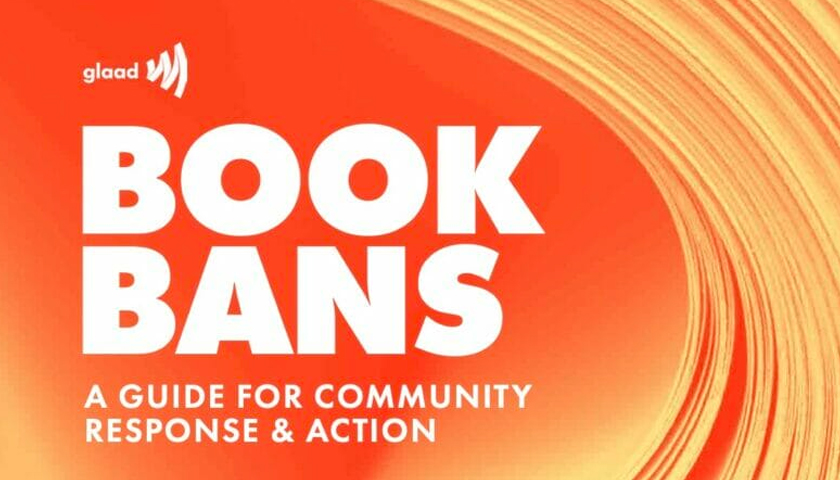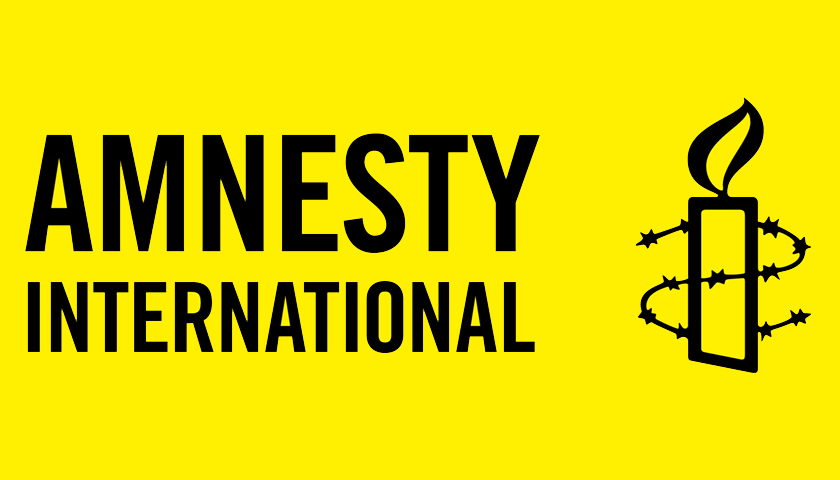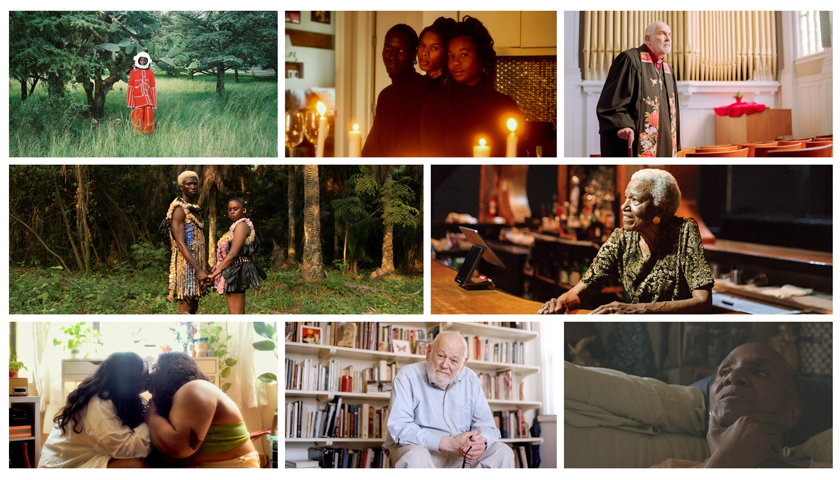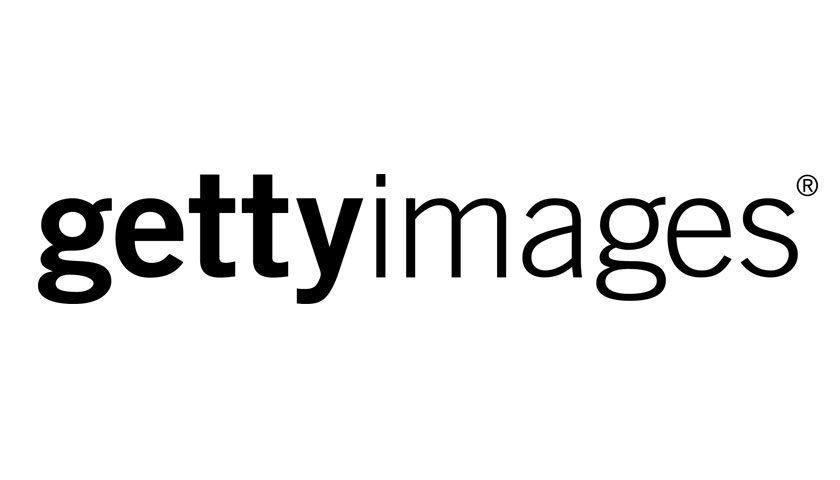GLAAD, the world’s largest lesbian, gay, bisexual, transgender, and queer (LGBTQ) media advocacy organization, along with EveryLibrary, a national organization supporting campaigns against book bans, announce a new resource to help communities unite and engage media with facts and personal storytelling to defeat book bans and challenges predominantly facing LGBTQ-inclusive titles and books about race and racism.
Book Bans: A Guide for Community Response and Action informs and prepares community members to organize, create authentic messages, and work with media to ensure diverse local voices are heard against book bans and in support of LGBTQ people and all people of color.
Read more here.
The American Library Association reported the most number of challenged titles in 2022 since it started documenting challenges twenty years ago, the majority by or about LGBTQ people and people of color. Last month, PEN America joined Penguin Random House, parents and challenged authors to sue Escambia County in Florida, alleging school board members banned books and ignored recommendations from its formal review process to return the books to shelves.
GLAAD’s guide offers community members step-by-step recommendations to:
- Organize a diverse local coalition including students, parents, teachers, librarians, LGBTQ advocates, authors, health professionals and clergy.
- Create fact-based and meaningful messages to inform and inspire all in the community and present to school and library boards.
- Engage news, social and local media with facts and local interview voices and resources.
- Inform all in the community including families, businesses, elected officials and taxpayers about the absurdity of book bans, and the threat they pose to vulnerable youth, and the entire community’s safety, prosperity and reputation.
- Hold school and library boards accountable to all taxpayers, ensure proper protocol is being followed in book reconsiderations, and demand necessary reforms to end the skyrocketing and discriminatory wave of book banning.
The guide also spotlights a community success story that turned back a book ban effort in suburban New Jersey. Community organizers engaged local mental health and child psychologists, a coalition of clergy, educators and librarians, and challenged New Jersey native author George M. Johnson to draft and deliver essays and statements shared in local and state news media and social media. Johnson’s statement was also delivered at the decisive hearing by Johnson’s mother and aunts, receiving a thunderous standing ovation. All challenged books were unanimously returned to the shelves.
“This guide is urgently needed as communities face a skyrocketing number of book ban attempts across the country targeting LGBTQ books and books about race and racism,” said GLAAD President and CEO, Sarah Kate Ellis.
“Book bans cannot stand,” Ellis continued. “LGBTQ people and books about us belong in libraries, schools and everywhere. This playbook to push back against book bans will help communities become safer, stronger, and smarter. By using the power of personal storytelling and engaging media, communities can unite with their neighbors, send a signal of welcome and acceptance, and see challenged books return to shelves. Communities who care about each reader and a future where all can be free must get the last word.”
“We are proud to support the work of GLAAD in this unprecedented attack on the LGBTQ community,” John Chrastka, EveryLibary Executive Director said. “We cannot allow this attempt to erase the lives of millions of Americans through book bans to continue. That’s why we’re committed to providing pro-bono resources to communities who are fighting back. I know this guide will help hundreds of communities respond to the attack on their First Amendment rights and the rights of their LGBTQ friends and family.“
Additional Research:
- Recently released data from the American Library Association noted a record 1,269 censorship attempts in 2022, nearly double the 729 reported in 2021, the most seen in the more than 20 years the ALA has been capturing this information.
- 2,571 titles were targeted, up 38% from 2021;
- A majority of challenged books were about or written by LGBTQ people and people of color;
- 90% of censorship attempts targeted multiple books, while 40% involved 100 or more titles.
- PEN America found 96% of book challenges were initiated without the requisite written forms as most district policies officially require.
- PEN America’s 2021-2022 Index of School Bans found:
- 41% highlighted LGBTQ topics or featured LGBTQ characters;
- 40% featured characters of color;
- 21% addressed matters pertaining to race and racism;
- 22% included sexual content.
- Center for American Progress: “These censorship efforts require tens of thousands of hours from teachers, librarians, and administrators to review the books and implement a system of censorship—all at a time when school resources are already stretched thin, and states across the country are facing teacher and staff shortages.”
- A poll commissioned by the EveryLibrary Institute and conducted by Embold Research found that of 1,123 registered voters polled, 75% opposed book bans.
- American Library Association: “The right to speak and the right to publish under the First Amendment has been interpreted widely to protect individuals and society from government attempts to suppress ideas and information, and to forbid government censorship of books, magazines, and newspapers as well as art, film, music and materials on the internet. The Supreme Court and other courts have held conclusively that there is a First Amendment right to receive information as a corollary to the right to speak.”



